Does your gut stop you from making the most of your holiday? You are not alone! Travelling exposes your gut to different foods, environments, and stressors, all of which can disrupt the balance of your gut bacteria and affect your digestion and immunity.
As a travel blogger who has visited over 30 countries, I know this problem all too well. That’s why I decided to research and experiment with different ways to keep my gut healthy while travelling.
In this post, I will share with you 6 useful tips that have helped me and my gut enjoy our travels more. If you want to learn how to avoid or reduce gut problems on the road, keep reading and let me know what you think.
Quick links:

Drink plenty of water
Water is essential for your gut health, as it helps to flush out toxins, maintain the balance of bacteria, and prevent constipation. Aim to drink at least two litres of water per day, and more if you are in a hot or humid climate.
But do err on the side of caution, because not all water is safe to drink. Especially in some countries where the tap water may be contaminated with harmful microorganisms or chemicals. To avoid getting sick, always buy bottled water from a reliable source, or use a filter or purifier if you have one. Do not drink water from fountains, wells, or streams, unless you are 100% certain they are clean. Boiling water may kill some germs, but it will not remove chemicals or metals, so it is not a reliable method.
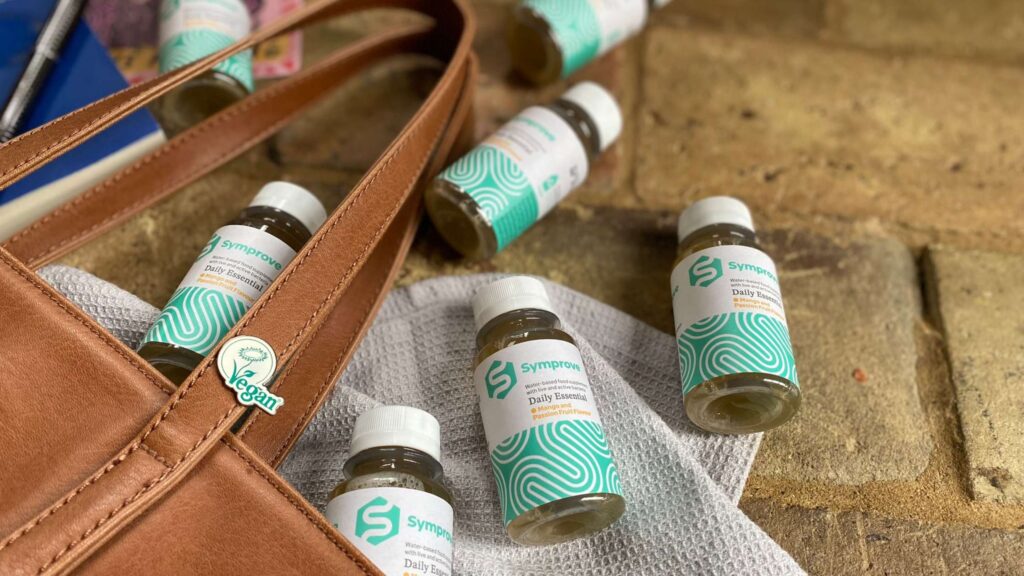
Bring some probiotics
Probiotics are live microorganisms that can improve your gut health by boosting your immune system, preventing infections, and restoring the balance of your gut flora. They can also help you cope with the stress and changes that travelling can cause to your digestive system.
You can find probiotics in some foods, such as yoghurt, kefir, sauerkraut, and kimchi, but they may not be available or suitable for you in every destination. Therefore, it is a good idea to bring some probiotic supplements with you, such as Symprove, which is a liquid formula that contains four strains of beneficial bacteria.
I take one dose of Symprove every morning on an empty stomach 10 minutes before consuming any food or drink. It helps ward off any issues I may encounter when accidentally eating ‘dodgy’ food abroad. It also helps ease my gut into sudden temporary diet changes. Read this Symprove review to find out more.
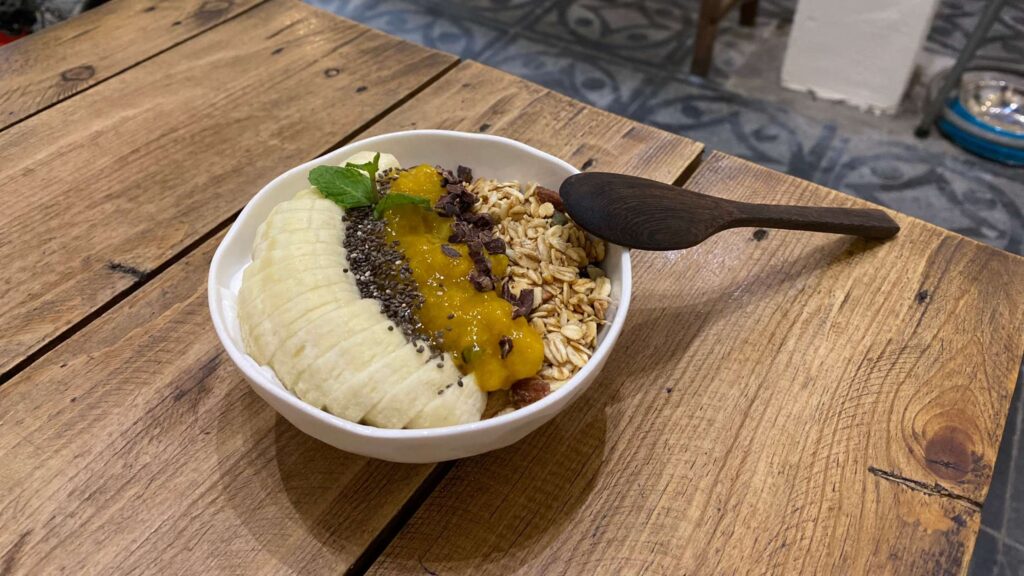
Eat plenty of fibre
Fibre is a type of carbohydrate that your body cannot digest, but your gut bacteria can. Fibre helps to feed your gut flora, regulate your bowel movements, and lower your cholesterol and blood sugar levels. It can also make you feel fuller and prevent overeating.
Fibre is found in many plant-based foods, such as fruits, vegetables, grains, nuts, seeds, and legumes. Try to eat a variety of these foods every day, and aim for at least 25 grams of fibre per day. You can also take a fibre supplement, such as psyllium husk, if you are not getting enough fibre from your diet.
One of the perks of travelling is discovering new and delicious foods, and you should not miss the opportunity to try the local fruits and vegetables that your destination has to offer. They can provide you with fibre, vitamins, minerals, and antioxidants that can boost your gut health and overall well-being.
I love discovering different fruits around the world. My favourites include dragon fruit and papaya. I also have a love-hate relationship with durian.

Limit alcohol consumption
Alcohol can harm your gut health, as it can damage the lining of your intestines, disrupt the balance of your gut flora, and impair your liver function. It can also dehydrate you, cause inflammation, and interfere with your sleep quality.
While it is tempting to enjoy a drink or two while on holiday, you should be mindful of the effects that alcohol can have on your gut and your health. Try to limit your alcohol intake to no more than one or two drinks per day, and avoid binge drinking or mixing different types of alcohol. Choose drinks that are lower in alcohol and sugar, such as wine, beer, or cider, and avoid cocktails, spirits, or liqueurs. Drink water or non-alcoholic beverages in between alcoholic drinks, and do not drink on an empty stomach.
I like to designate a few nights each week for drinking and then stay clear of alcohol for the rest of the time. This means my gut gets plenty of time to recover from any boozy sessions.
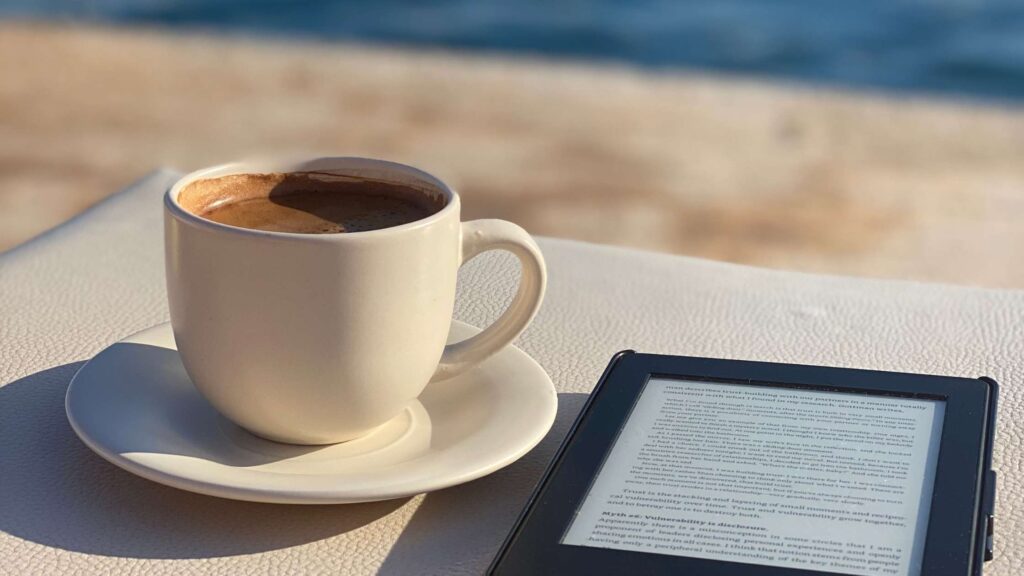
Find time to relax
Travelling can be stressful and exhausting, both physically and mentally. Stress can affect your gut health by altering your gut flora, increasing your intestinal permeability, and triggering inflammation. It can also cause symptoms such as bloating, cramps, diarrhoea, or constipation.
To prevent or reduce stress, you should find time to relax and unwind while travelling. You can do this by engaging in activities that you enjoy, such as reading, listening to music, meditating, or doing yoga. You can also practice some breathing exercises, such as deep breathing, to calm your nervous system and lower your heart rate and blood pressure. Try to get enough sleep, at least seven to eight hours per night, and stick to a regular sleep schedule as much as possible (much easier when you limit the booze).
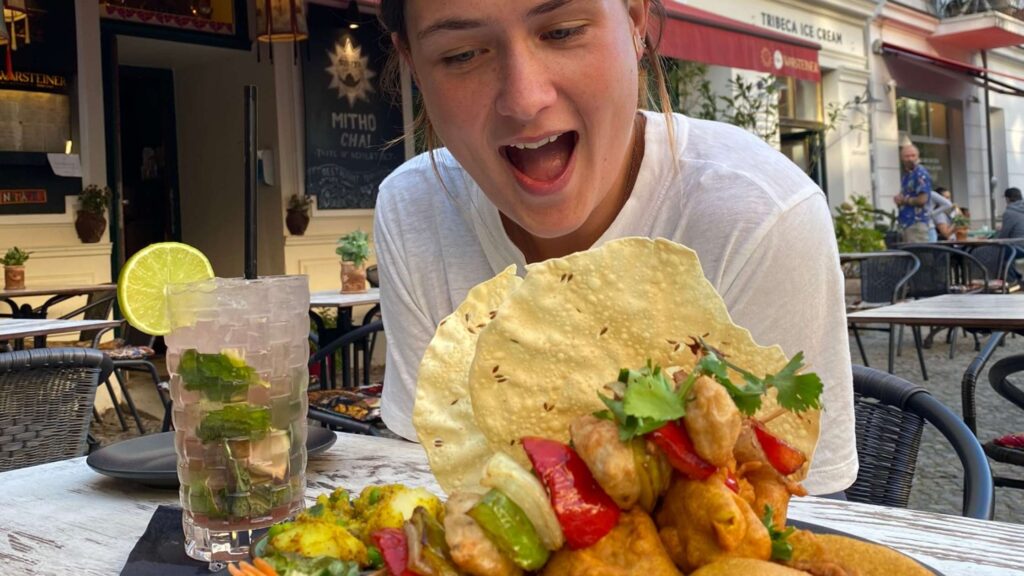
Choose food wisely
The food you eat can have a major impact on your gut health, as it can provide nutrients, fibre, and probiotics for your gut flora, or it can cause irritation, inflammation, and infection. Therefore, you should be careful and selective about what you eat while travelling, especially in places where the food hygiene and safety standards may be different or lower than what you are used to.
Some foods that you should avoid or limit while travelling are:
- Plane food: Plane food is often processed, high in salt, fat, and sugar, and low in fibre and nutrients. It can also be contaminated with bacteria or viruses, as it is prepared and stored in unsanitary conditions. If possible, bring your own food or snacks for the flight, such as fruits, nuts, granola bars, or sandwiches.
- Street food: Street food can be tempting and delicious, but it can also be risky for your gut. Street food is often cooked and sold in unhygienic environments, where the food may be exposed to dirt, dust, insects, or animals. It may also be made with ingredients that are spoiled, contaminated, or unfamiliar to your digestive system. If you have a sensitive gut, you should avoid eating street food, especially if it is raw, uncooked, or unpeeled, such as salads, fruits, or juices. If you do want to try street food, make sure it is hot, fresh, and well-cooked, and avoid sauces, condiments, or ice cubes that may be made with tap water.
- Spicy food: Spicy food can be flavourful and enjoyable, but it can also be irritating and inflammatory for your gut. Spicy food can trigger or worsen symptoms such as heartburn, indigestion, or acid reflux, especially if you are not used to it or if you eat it on an empty stomach. It can also cause diarrhoea, cramps, or nausea, as it can stimulate the movement of your intestines and increase the secretion of fluids and acids. If you have a sensitive gut, you should avoid or limit spicy food, and opt for mild or bland dishes instead. You can also eat some yoghurt, bread, or rice to neutralize the spiciness and soothe your stomach.


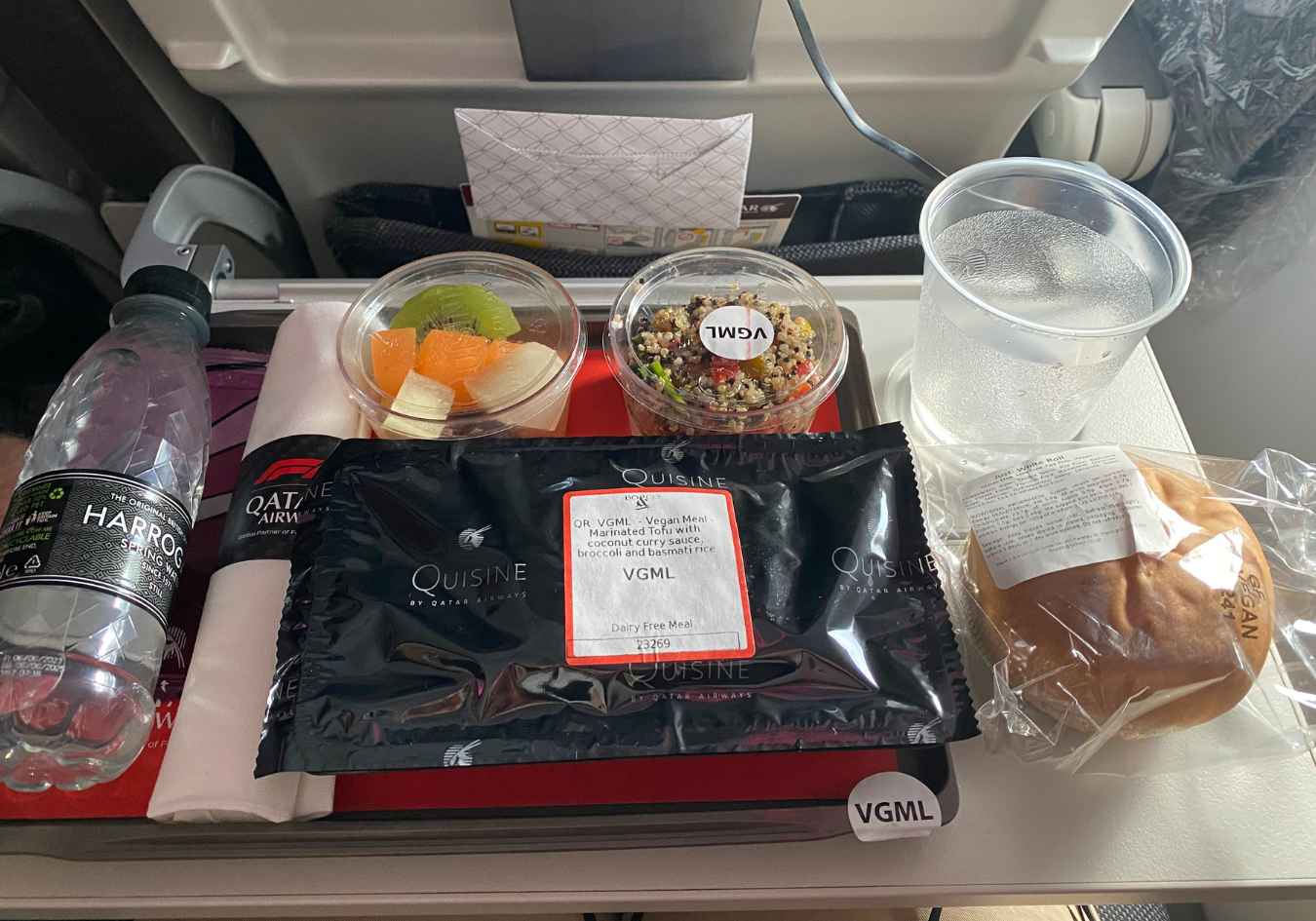


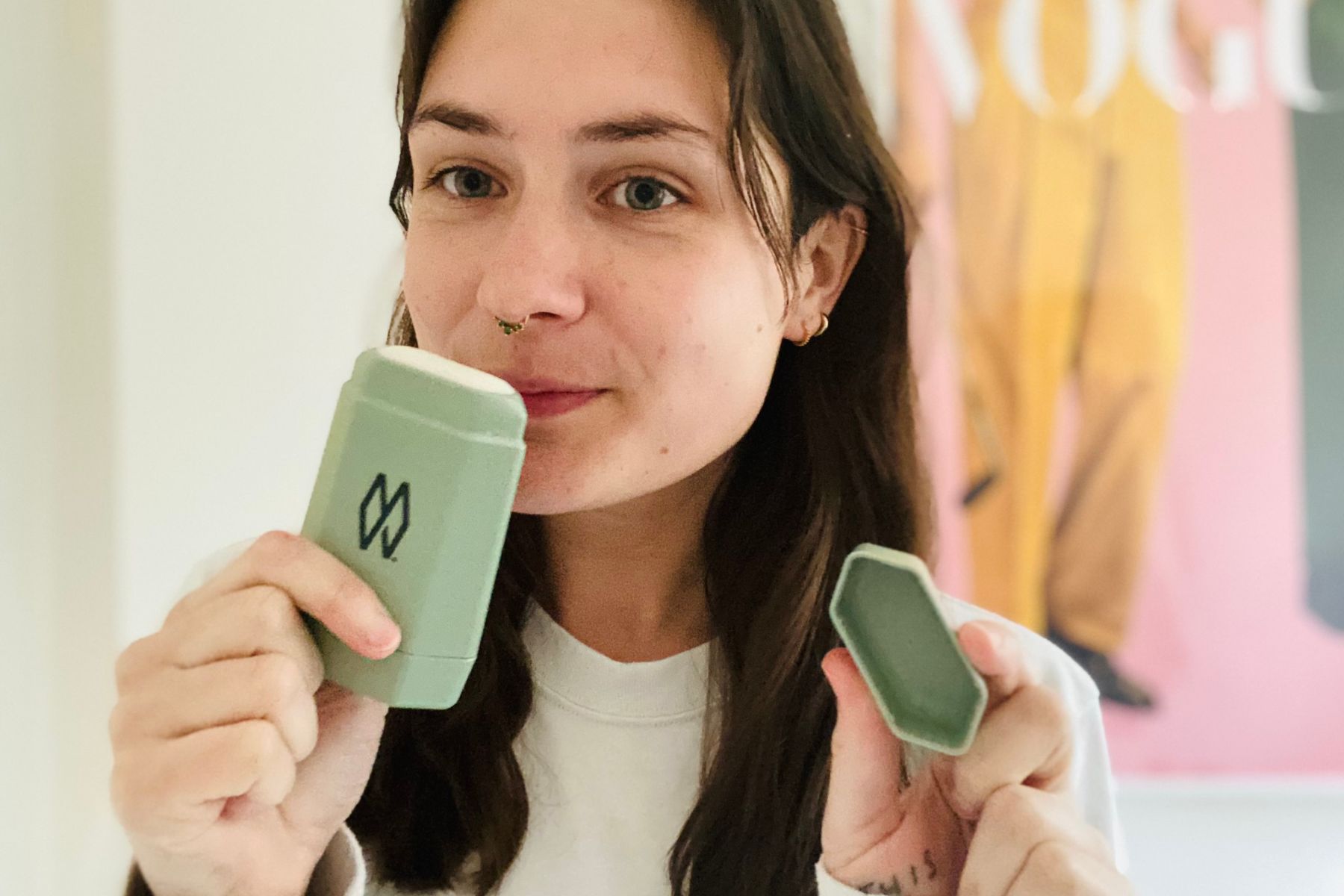







Leave a Reply